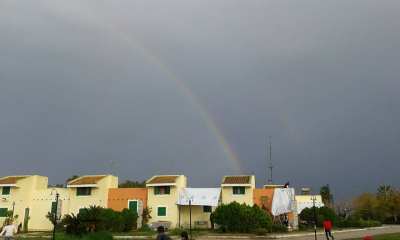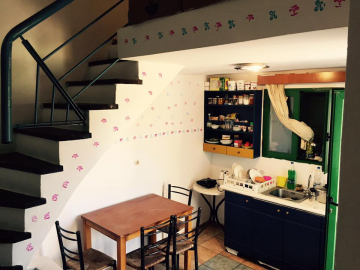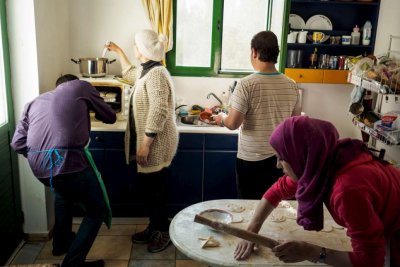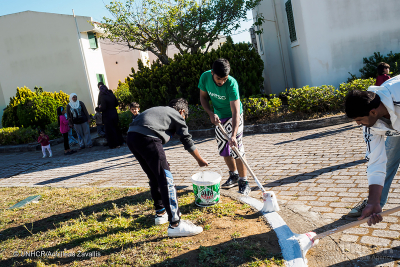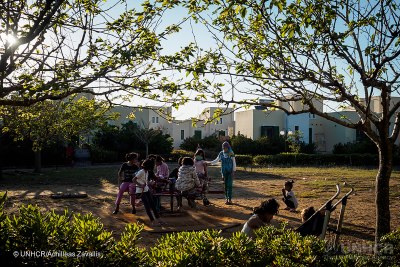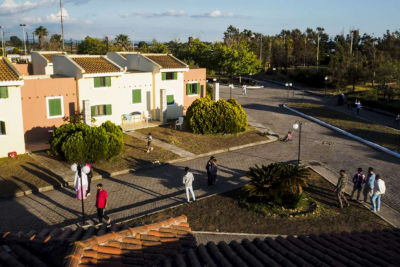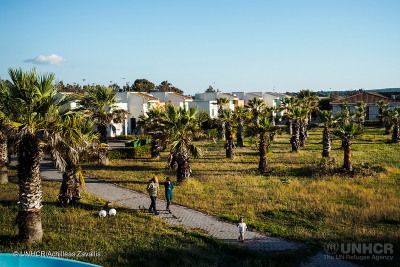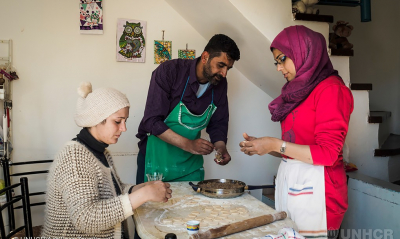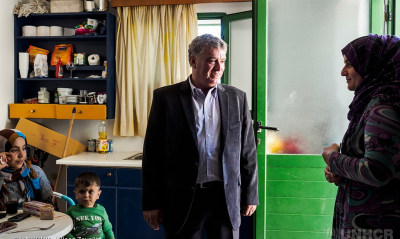LM Village
Greek Syrian mayor and refugees bring tourist village back to life. A Greek summer resort that closed over five years ago as a result of the financial crisis has been turned into a haven for more than 300 refugees.
The touristic company of the Municipality of Ano Liosia of Athens completed LM Village in 1988. Myrsini council provided the land to the company, with the agreement that the latter would construct and run LM village for 10 years, and then its ownership would be granted to Lehainon Municipality (the Municipality where Myrsini belongs).
Ten years later, around 2010, bad financial handling of LM village affairs by the Ano Lioisa Municipal touristic company led to the village’s closing. Its owner is now 50% Andravida-Killini Municipality, and 50% Lehainon Municipality.
The reopening of the resort as a refugee reception centre is the initiative of the local mayor, Nabil-Iosif Morad, a Syrian doctor from Homs who has lived in Greece for 25 years. He offered the resort after the Greek Government asked local mayors for help in taking in the 57,460 refugees still in Greece, following border closures along what is known as the 'Balkan route' to northern Europe. More than 1 million refugees and migrants arrived in Europe last year by sea, according to UNHCR figures.
Nabil-Iosif says at first he started gathering donations of clothing to send to Idomeni, the unofficial camp at the Greek border with the former Yugoslav Republic of Macedonia, where 10,000 refugees lived in squalor for several months this spring. “But that wasn’t enough. So I asked whether we could use this space.”
All texts from: http://www.unhcr.org/news/stories/2016/6/57569aea4/greek-syrian-mayor-refugees-bring-tourist-village-life.html
LM Village is located 70 kilometres from Greece’s third-largest city, Patras. Nabil-Iosif says that although some residents were hesitant about using the resort as a refugee shelter, the local council approved the idea almost unanimously.
Each of the 38 neatly painted bungalows houses two families. Their laundry flutters in the breeze. Mothers chat on porches framed by palm trees. Teenagers play basketball on an abandoned court as toddlers chase each other up and down a faded, blue-and-yellow water slide nearby. Five times a day, a grandfather’s Islamic call to prayer echoes through the square.
The resort-turned-refugee-shelter is a village in nearly every sense, a far cry from the fighting, shelling and sieges its residents escaped just months ago. For most, it is the closest approximation to their former, pre-war lives that they have experienced in years.
“In this place we try to forget we are refugees,” says Tarek, 42, who once owned a restaurant outside Damascus and fled to Greece with Kinda and their two children. “We can pretend we’re on holiday.”
The Greek Defence Ministry, which oversees some aspects of migration management in cooperation with the Minister for Migration Policy, renovated dilapidated buildings and restored electricity and drinking water supplies.
LM Village receives help from local Red Cross volunteers, who distribute donated food and have organized a library and school with English and Greek lessons taught by both refugees and volunteers. UNHCR is now establishing a prayer space and food distribution system for the holy month of Ramadan. Despite the good living conditions, however, the sense of temporariness is hard on those anxious to reunite with family members elsewhere in Europe.
Many refugees await interviews with the Greek Asylum Service so they can apply for relocation, a European Union program that aims to move 160,000 asylum-seekers from Greece and Italy to other Member States in the coming years. More than a dozen have already left LM Village for Portugal. More will be relocated in the months after ‘pre-registration,’ a new, nationwide joint effort by UNHCR and Greek Asylum Service to identify legal solutions for each individual asylum-seeker.

